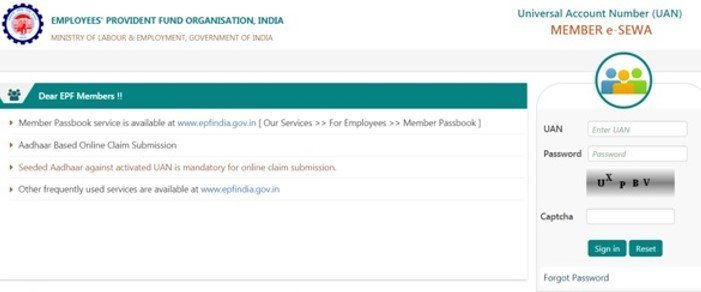A debt consolidation loan can simplify your finances by combining multiple debts into a single, manageable monthly payment. This can lower your interest rate, help you pay off debt faster, and reduce financial stress. However, finding a reliable lender is the most critical step. Choosing the wrong one can lead to higher costs and more debt, so it’s essential to know what to look for before you commit.
What to Consider Before You Seek a Consolidation Loan
Before you even start searching for a lender, it’s vital to assess your own financial situation. A debt consolidation loan is a tool, and like any tool, it must be used correctly to be effective. Rushing into a loan without a clear understanding of your finances can make matters worse.
Take a moment to honestly review your circumstances. This self-assessment will help you determine if consolidation is the right move for you and prepare you for discussions with potential lenders.
Consider these key areas before moving forward:
- Your total debt and present cash flow: Do you know exactly how much you owe and how much money you have available each month?
- The impact on your credit score: Applying for a new loan can temporarily dip your score.
- The root causes of your debt: Have you addressed the spending habits that led to the debt in the first place?
- Your ability to afford the new payment: A new loan is only helpful if you can consistently make the payments on time.
Understanding these factors is the first step toward responsible debt management. It ensures you are not just shifting debt around but are actively working on a long-term solution to become debt-free.
Focus on Low Interest Rates to Save Money
The primary purpose of getting a debt consolidation loan is to save money. This is achieved by securing an interest rate that is lower than the average rate you are currently paying across all your individual debts, especially high-interest credit cards.
You do not want to end up in a situation where your new loan costs you more in the long run. For debt consolidation to be successful, the new interest rate must be less than what you are currently paying. Compare the Annual Percentage Rate (APR) from different lenders, as this figure includes both the interest rate and some fees, giving you a more accurate picture of the total cost.
Uncover All Hidden Costs and Fees
A low interest rate can be very appealing, but it doesn’t tell the whole story. Some lenders attract borrowers with low advertised rates, only to add on various fees that significantly increase the total cost of the loan.
Any reputable lender must disclose all upfront charges, costs, and fees associated with the loan. Be sure to ask about origination fees (a fee for processing the loan), prepayment penalties (a fee for paying the loan off early), and late payment fees.
Once the lender reveals all the charges, review the loan agreement carefully. Ensure you agree with the repayment formula and that there are no clauses that could lead to unexpected additional costs down the road. Transparency is a key sign of a trustworthy lender.
Understanding the Loan Term and Repayment Period
The loan term, or the length of time you have to repay the loan, directly impacts the size of your monthly payment. It’s a balancing act that requires careful consideration of your budget and financial goals.
A shorter repayment period will help you clear your debt faster and save you money on interest over the life of the loan. However, this also means your monthly payments will be higher. Conversely, a longer repayment term will result in lower, more manageable monthly payments, but you will end up paying significantly more in total interest.
Choose a lender that offers flexible terms so you can find a plan that works for your budget. You need an affordable monthly payment that you can comfortably make without straining your finances, while still making progress on your debt.
Check the Lender’s Reputation and Customer Feedback
With so many institutions offering debt consolidation loans, it can be hard to tell the good from the bad. Banks, credit unions, and online lenders are all competing for your business, making it crucial to do your homework.
Start by researching the background of any lender you are considering. Look for online reviews and feedback from other customers on websites like the Better Business Bureau (BBB) or Trustpilot. Also, confirm that the lender is legally registered to operate in your state. A major red flag is any lender that asks for an upfront fee to “guarantee” or “secure” your loan approval.
| Lender Type | Pros | Cons |
|---|---|---|
| Banks | Established relationship, in-person service | Stricter credit requirements, slower approval |
| Credit Unions | Often have lower rates, focus on members | Must meet membership requirements |
| Online Lenders | Fast application process, more flexible criteria | Interest rates can be higher, no physical branches |
A reputable lender will only ask for payment based on the agreed-upon term, amount, and rate after the loan has been disbursed.
Ask About Credit Card Balance Transfer Options
If the majority of your debt comes from high-interest credit cards, a balance transfer might be a good strategy. Some lenders, particularly credit card companies, allow you to move a balance from a high-interest card to one with a 0% introductory APR.
This can give you a period of several months to pay down your principal balance without accumulating any interest. However, this strategy only works if you can pay off a significant portion, or all, of the debt before the introductory period expires.
Before you commit, ask the lender what the APR will be once the introductory period is over. If you still have a balance, it will start accruing interest at the new, often much higher, rate.
Frequently Asked Questions
What is the main goal of a debt consolidation loan?
The primary goal is to simplify your debt by combining multiple payments into one. Ideally, this new loan should also have a lower interest rate than your previous debts, which helps you save money and pay off your debt faster.
Can I get a debt consolidation loan with a bad credit score?
Yes, it is possible, but your options will be more limited. Lenders may offer you a loan with a higher interest rate and less favorable terms to offset the increased risk. It is important to compare offers carefully.
How does a debt consolidation loan affect my credit score?
Initially, your score might dip slightly because of the hard inquiry when you apply. However, by making consistent, on-time payments on the new loan, you can improve your credit score over time.
Are there any fees I should watch out for with a consolidation loan?
Yes, always look for origination fees, prepayment penalties, and late payment fees. A trustworthy lender will be transparent about all costs associated with the loan before you sign any agreement.









Leave a Comment